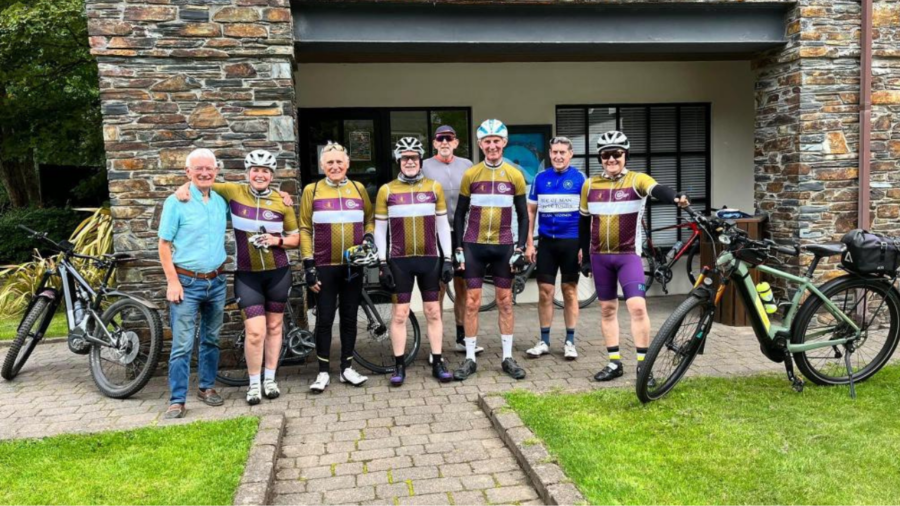Advancements in healthcare, exercise, diet, and quality of living have transformed retirement from the end of our lives into the beginning of an exciting new chapter.
But living longer isn’t the same as living well. An increased lifespan will create crucial challenges that retirees must prepare for as early as possible.
Make purposeful investments in these three areas to maximise your Return on Life in your 60s, 70s, 80s, and beyond.
Ok, I’m not quite there yet, but I thought I’d share some of my own thoughts along with those I’ve learned from some of our clients.
1 – Your physical health.
When you’re younger, health care and exercise often get squeezed around working and raising a family. Retirees have the time and resources to make their health a centrepiece of their new schedules by engaging a personal trainer, buying time with a golf professional or taking long overdue lessons when they go skiing (what do you mean, I need poles??).
I recently succumbed to buying an Ebike to keep up with you know-who and get more comfortably up into the hillsides I am so fortunate to live nearby.
I recommend, like me, you get into a routine with your doctors, even if you’re feeling well. They love to see you, especially when you show up!
And between annual check-ups, don’t ignore lingering discomfort or lumps, bumps and bruises that take too long to heal.
One of my recent podcast guests reliably informed me that a man’s hormone system is like a tractor and goes along fine for years, whereas we ladies are more akin to a Ferrari and need regular fine-tuning. This makes a lot of sense to me!
Remember: the best health care is preventative. In addition to seeing your doctors, you can get in front of health problems by upgrading your diet, exercising regularly, and finding ways to stay active even when you’re at home.
Tending your garden or walking to a neighbour’s house for tea will do your body more good than another afternoon on the sofa watching golf!
And at the end of the day, unplugging your devices will help you power down, recharge, and start tomorrow with the energy you need to make the most of your day.
2 – Your mental health.
Some people forget that the brain is a part of your body that needs exercise too.
Crosswords, word games, jigsaws, sudoku, chess puzzles, and other brain teasers can stimulate your mind and help reduce the risks of cognitive decline, including Alzheimer’s.
Go through your electronic devices and delete apps you never use or unsubscribe from the surprising number of marketing emails promising ‘too good to be true’ returns. (Not this one!)
New experiences can also keep your neurons firing as you age. Leave a little room in your retirement schedule to experiment and explore.
Pick a new hobby or sport that will mix physical activity with a healthy learning curve. This is very popular with our clients, and I love the sound of pickleball!
Join clubs or groups where you can meet new people. Give back by volunteering, teaching, or mentoring. Start checking off your bucket list of travel destinations and expose your mind to the rich wonders and cultures of the wider world.
I’ve added many new destinations from speaking with our well-travelled clients.
(re)Learn how to play an instrument or how to speak a new language. Talking of apps, I’ve found one called Duolingo, which looks promising.
Read through the great books or try writing one of your own (which one of our clients is actually doing).
Your brain will also appreciate you placing a high priority on spending more time with the people who are most important to you. Regular social interaction reduces the risks of depression and anxiety and improves happiness and sense of purpose.
Now that you’re retired, take advantage of the extra time you have to be more involved in your loved ones’ lives and, in turn, share this exciting new stage of your life with them.
Apparently, I am welcome to caddie any time, although learning to play golf is not going to happen anytime soon! Just saying.
3 – Your financial health.
Running out of money as you age is a pervasive fear among retirees. It’s also going to be a more and more realistic fear as retirement is potentially decades longer than in previous generations.
A longer life gives you more opportunities for meaningful experiences. But it also means you will have to cover your basic needs longer.
Older seniors also face higher risks of immobilising injuries or degenerative mental diseases. You must find the right financial balance between enjoying yourself while you’re still able and having the resources to stay safe and comfortable later in retirement.
From the most financially astute to the least interested, it never ceases to surprise me how much comfort our clients take from this regular lifeboat drill we conduct at our Forward Planning Meetings.
Our Retirement, Coaching and Financial Planning exercises help you plan for every retirement stage, assess your progress towards key goals, challenge your assumptions and adjust as your life changes.
If you haven’t done so already, get in touch and let’s start planning together for a long retirement full of happy, healthy living.


